Fed Up With the Homelessness Crisis, the Sacramento County DA Sues the City
Can DA Thien Ho’s lawsuit force cities to more effectively confront a growing humanitarian catastrophe?
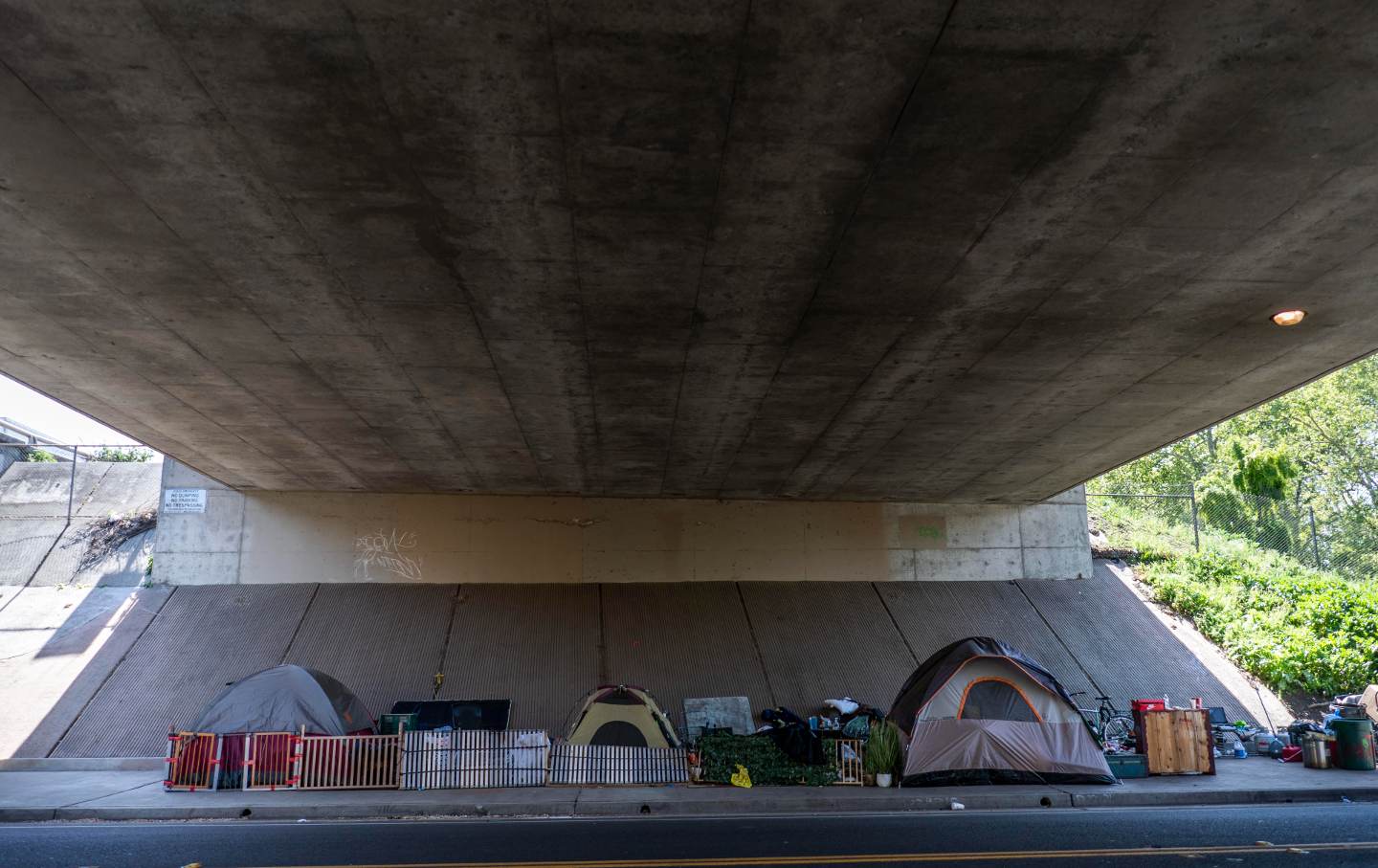
A homeless encampment sits underneath the I-5 freeway in Sacramento, Calif., on April 3, 2022.
(Melina Mara / The Washington Post / Getty Images)Sacramento—On Tuesday, Sacramento County District Attorney Thien Ho sued the city of Sacramento over the presence of thousands of unhoused individuals camped out on city streets, alleyways, riverfronts, highway overpasses, highway underpasses, and empty lots. Coming two months after Ho first got into a public spat with city officials over how to house the homeless, the 36-page lawsuit argues that the city has been derelict in its duties: that it has let homeless encampments spread unchecked, failed to provide sufficient numbers of safe alternatives for the homeless, and neglected to follow up on residents’ complaints about fires, criminal activity, threatening behavior, and overt drug dealing and prostitution by denizens of the encampments.
It is the first time that a county DA, anywhere in the country, has filed suit against a city over the issue of homelessness, and it is a reflection of growing fury, among voters of all political stripes, at city administrations’ inability to reduce the number of people living on the streets.
Ho argues that there are already city ordinances against creating a public nuisance or a risk to public safety that could be used to tackle the encampments, but that the city has chosen not to enforce these laws. The city, not surprisingly, differs, arguing that its hands have been largely tied by a series of court rulings and injunctions against sweeps of the encampments.
Ho says that his lawsuit isn’t intended to seek punitive damages against the city; rather, it’s a way to secure court oversight of a broken process—one in which every level of government in California spends more and more money on tackling homelessness, and yet the numbers of people living on the streets continues to rise.
By suing Sacramento, he wants to help ensure that the city enforces existing codes intended to keep streets and parks clean and safe and force an audit of how the city is spending its funds aimed at tackling the homelessness crisis. After all, California has tripled the amount of money being spent on tackling homelessness in the Sacramento region, and yet the on-the-streets mental health crisis continues to escalate. Ho’s lawsuit also aims to compel the city to force unhoused residents who refuse to go to a shelter to enter safe, city-run tent encampments.
The most recent point-in-time count found that the county’s homeless population, most of whom live in Sacramento, has increased 67 percent in the last three years. But when the sheltered homeless are removed from this calculus, it turns out that the number of unsheltered homeless living on the streets increased by closer to 80 percent, from 3,900 in 2019 to 6,664 in 2022. And while many of those camped out on sidewalks and open lots simply cannot afford housing, many others are severely mentally ill, addicted to drugs, or recently released from prisons or jails. Many of these men and women refuse treatment, and others, for a variety of reasons, don’t accept the shelter spaces offered them. Moreover, as a result of California’s failure to create a right-to-shelter law similar to that which exists in New York, there are far too few shelter spaces to accommodate all the homeless, so even those who agree to go to shelters often find no beds available.
“I believe there should be professionally operated safe ground sites. And if people don’t want to go to a safe ground, then they can’t camp. They just can’t,” Ho told me, talking about areas on publicly owned land, off of city streets, that the city would designate as safe and secure spots for campers. “You cannot just allow a total lack of enforcement.” Ho argues that there must be some sort of penalty, so that if campers refuse to move to secure grounds, the city has the ability to compel them to remove their camps from the streets. It is, he says, a safety issue for housed and unhoused residents.The majority of chronically homeless women report being sexually abused on the streets. And each year, scores of homeless die of drug overdoses, of exposure to extreme weather conditions, or violently, in an attack.
Nobody benefits from the spread of shantytowns; yet, no California city has worked out what to do to tackle this crisis. The problem is too vast, the solutions too expensive. And so, the dysfunctional status quo is allowed to continue. Sacramento is, in microcosm, an extreme example of the challenges every city in the region faces.
To accuse people concerned about such developments of being insensitive, or being somehow conservative, or being NIMBYists, as too many advocates for the homeless do, is to miss the point. This issue transcends left and right; it is about the safety and dignity of residents, both housed and unhoused alike. And if the left doesn’t work out a sensible policy response to this issue, you can be damn sure the right will fill the void.
In the area where I live, a homeless encampment took root on the grounds of an abandoned warehouse, resulting in 14 major fires in the space of a couple years. Each time, smoke and ash wafted over the community, and taxpayers paid for the fire department to come out. Despite multiple complaints, the city did nothing to address the encampment. Similar situations abound around the city of a half million residents, resulting in a growing chorus of outrage at the inability to get a handle on this crisis. The spate of fires in my neighborhood only ended when the warehouse was burned so extensively that it had to be demolished earlier this summer, leaving a pile of debris. The encampment, however, is still there.
Up and down Broadway, one of Sacramento’s main drags, fenced off empty lots exist where once stood businesses. Late last year, Starbucks and Jamba Juice pulled out, announcing that they could no longer operate there because of the wave of property and nuisance crimes and the number of times unhoused, mentally ill individuals had come in and assaulted or threatened staff. At the local post office, now surrounded by shanties, the drive-through mailboxes have had to be removed because they were repeatedly broken into. On one side street after another off of Broadway, encampments have sprouted up; the streets are only passable where huge boulders have been placed on the sidewalk to make it impossible to pitch a tent or put up a cardboard shack. It is a civic failure.
To be sure, the city of Sacramento is caught in a vise. Its leadership is attacked by frustrated residents, and now by the county DA; yet it is also hobbled by a lack of mental-health services and drug-treatment beds, a dire shortage of affordable housing, and by two deeply flawed Ninth Circuit court rulings, Martin v. Boise, and Johnson v. Grants Pass, that make it illegal to outlaw encampments unless there are enough shelter beds for everyone.
Popular
“swipe left below to view more authors”Swipe →Mayor Darrell Steinberg has repeatedly been heckled and picketed by homeless residents, and when encampments are removed, usually after months or even years of complaints from residents, he is routinely, and unfairly, lambasted for not caring about the unhoused or the mentally ill; in fact, Steinberg has a long and storied career as an advocate for the mentally ill, and when he was a senator pro tem in the California legislature, he focused extensively on expanding assistance for the mentally ill. He is also chair of the governor’s statewide commission on homelessness and supportive housing. But in many ways Steinberg’s hands have been tied: Legal advocates for the homeless wield the Martin case, in particular, to prevent the city from sweeping public areas of encampments.
While good and compassionate in theory, the Ninth Circuit rulings have, in recent years, scared cities off from enforcing pretty much any anti-camping ordinances and have given many campers an incentive to ignore repeated city requests to vacate encampments and go either to shelters or to treatment facilities. Even though, under Martin’s terms, cities can still limit where the homeless set up camp, many city governments have taken the path of least legal resistance and essentially stopped enforcing any anti-camping ordinances. The two Ninth Circuit rulings have become examples of good intentions gone awry. As a result, the State of Oregon is working to convince the US Supreme Court to rule against these two decisions, and California Governor Gavin Newsom, hardly a friend of the conservative court, has instructed his legal team to file an amicus brief throwing California’s weight behind Oregon’s request.
Ho’s office is also going to be filing an amicus brief in the case. In the meantime, the DA is seeking to consolidate public support in his legal battle with the City of Sacramento.
At this week’s press conference during which Ho announced the lawsuit, one resident after another came forward with stories of their neighborhoods having been taken over, and their quality of life eviscerated. Ho told of one elderly woman—a widow and a cancer patient—who was confronted daily by a whip-wielding homeless man, and whose son was told by an individual camping out on her street that, once she was left alone in her house, she would be raped.
Sacramento’s elected officials have been dismissive of the DA’s lawsuit, arguing that it is a political stunt and the DA is simply grandstanding. Yet Ho isn’t necessarily wrong when he says he believes the public would be on his side in any trial. “I will be calling hundreds of witnesses. The city would get crushed, crushed on this litigation.” Since many Sacramento residents and businesses have also filed a parallel civil suit, litigated by high-profile local attorney Ognian Gavrilov, Ho believes that the overwhelming preponderance of evidence likely to be produced in discovery for both cases that the city has failed to enforce its own codes will force Sacramento to the negotiating table to work out a viable timeline to reduce the number of homeless and to clear encampments from city neighborhoods.
After years of encampments growing up and down the West Coast, Californians, Oregonians, and Washingtonians are fed up.
In California, Newsom, who has shown himself skilled at reading the political tea leaves, has been pushing to create a mental-health infrastructure built around Care Courts that would both compel counties to provide mental health services and severely mentally ill homeless individuals to accept such treatment.
My guess is that, now that Ho has filed suit against Sacramento, other county DAs will follow suit. And, while cities certainly can’t—and shouldn’t have to—bear the brunt of solving California’s housing and homelessness crisis on their own, perhaps court-ordered oversight will force cities, and by extension the counties and states of which they are a part, to work together more effectively to confront what is clearly an out-of-control humanitarian catastrophe.
More from The Nation
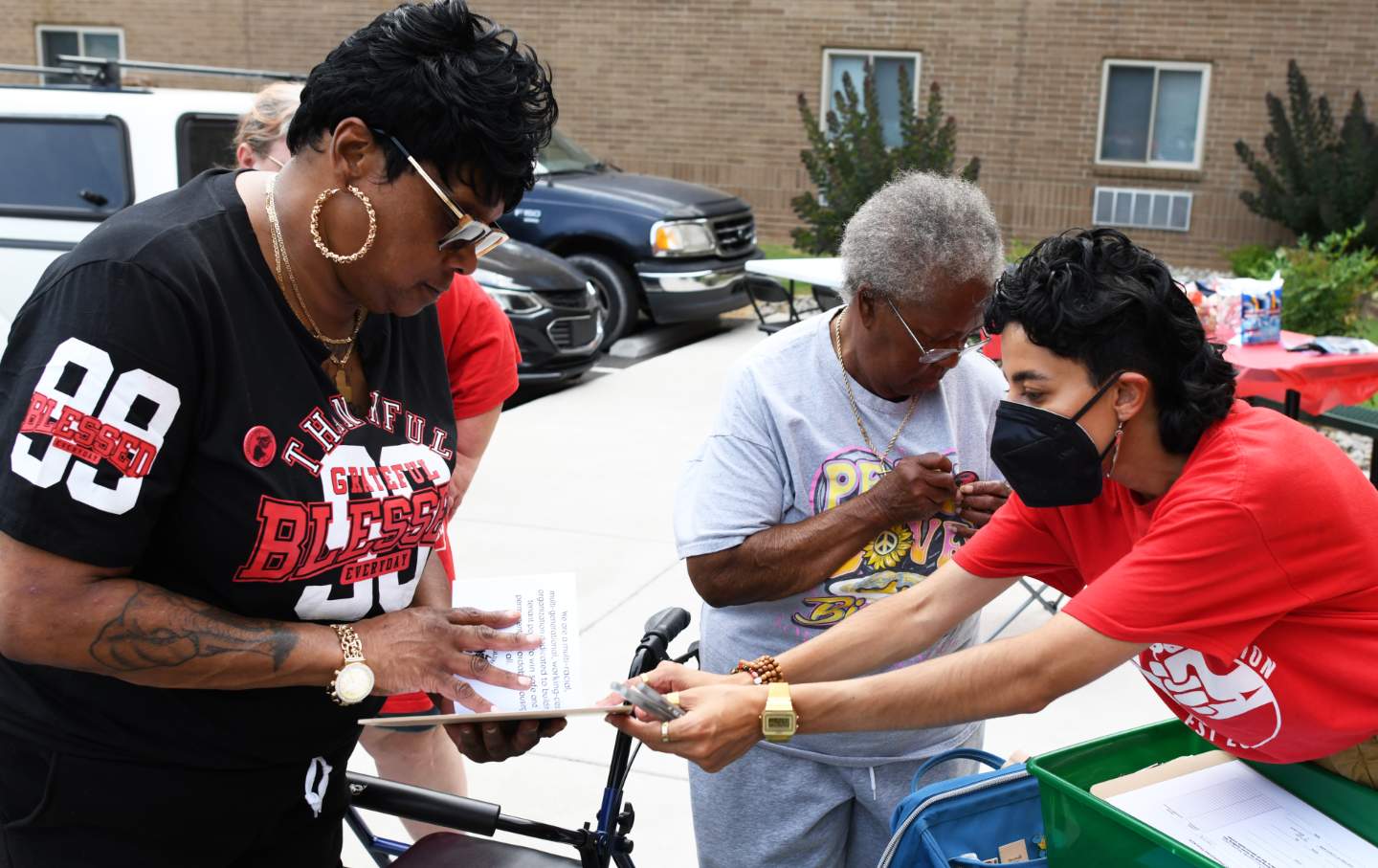
In the US, Tenants Are Usually on Their Own. Can a New National Tenant Union Change That? In the US, Tenants Are Usually on Their Own. Can a New National Tenant Union Change That?
The Tenant Union Federation is fostering a wave of tenant leaders who have been pushed to the margins—many of them elderly, disabled, low-income—as they aim to transform renters i...
Letters From the November 2024 Issue Letters From the November 2024 Issue
No mention of genocide… Developer talk…
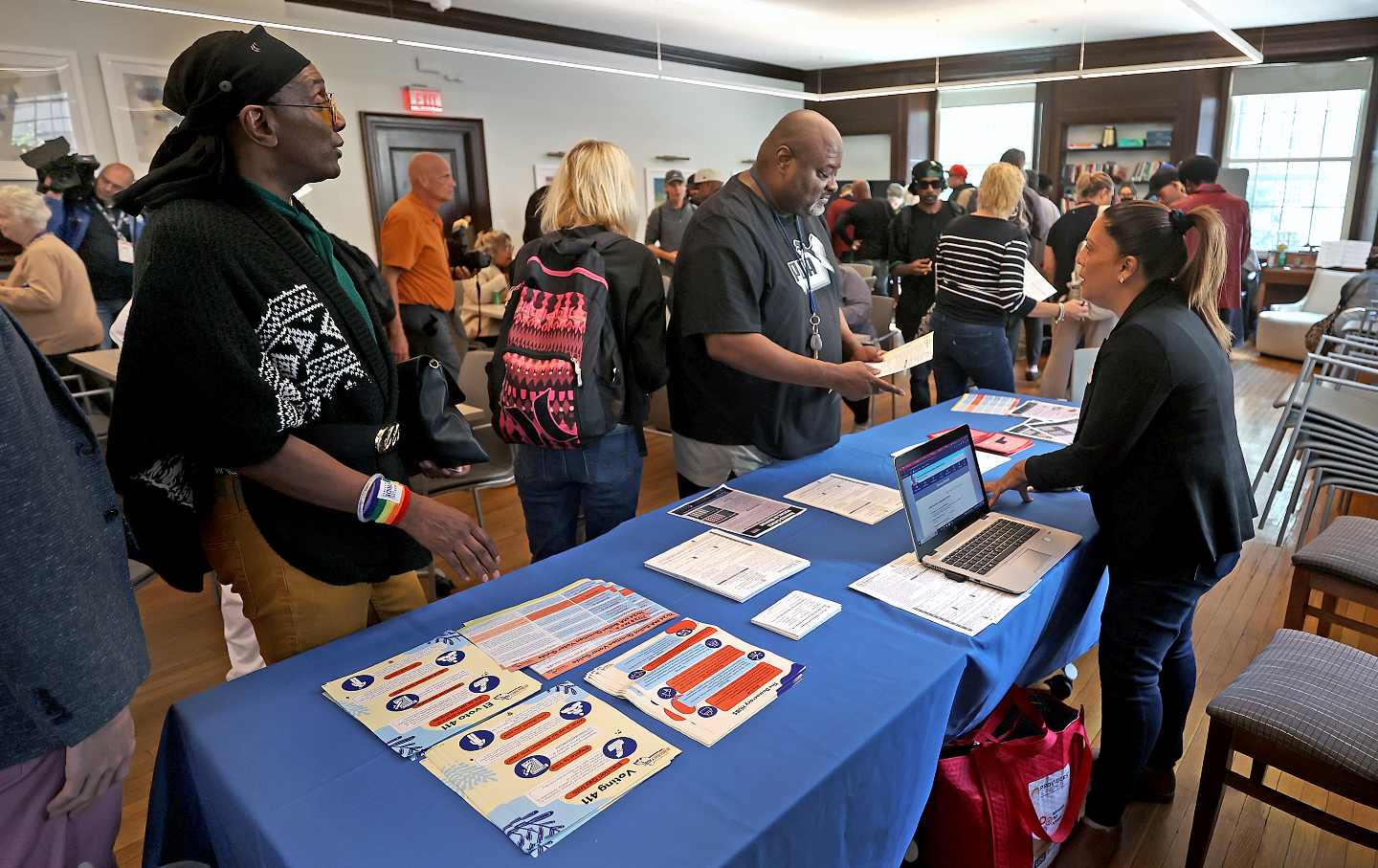
The Hidden Barriers to Voting While Unhoused The Hidden Barriers to Voting While Unhoused
Turnout is low among people experiencing homelessness–a result of restrictive registration laws, political disaffection, and the misconception that they’re not allowed to vote.
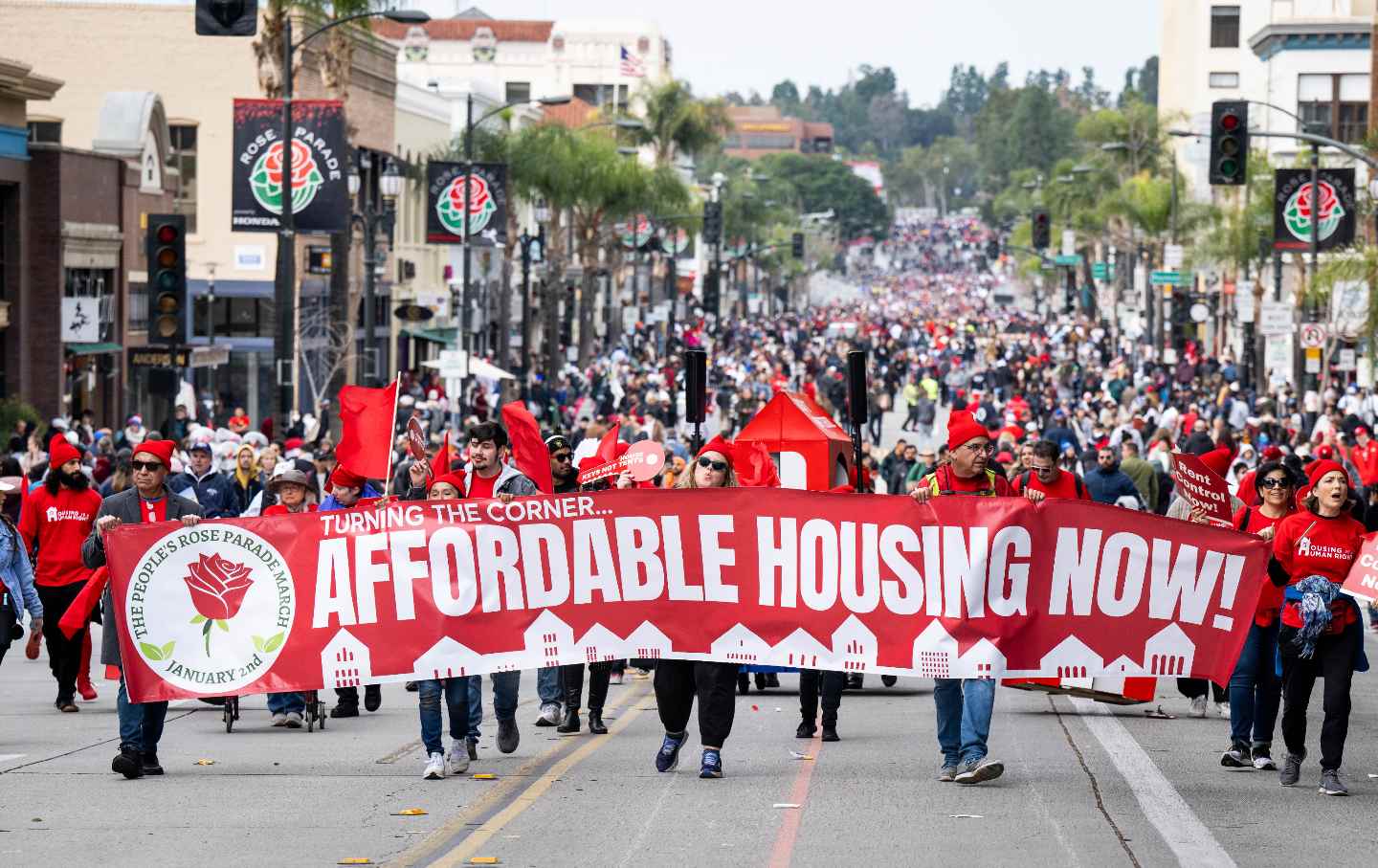
The Future of Rent Control Is on the Ballot in California The Future of Rent Control Is on the Ballot in California
Proposition 33 could overturn the controversial Costa-Hawkins Rental Housing Act, which has limited rent control policies in the state for decades.
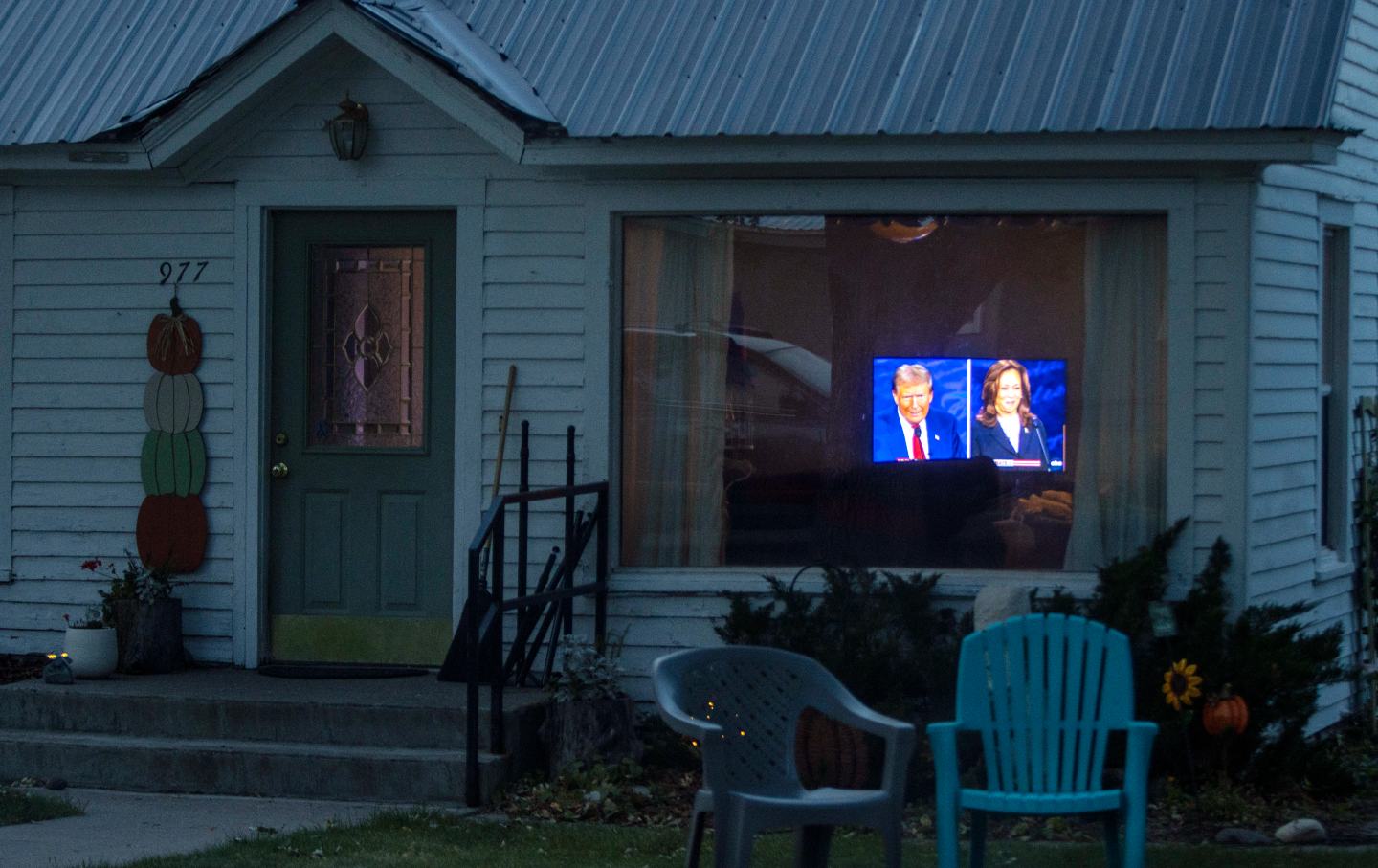
For Harris, Housing Takes Center Stage, but Tenants Are Not the Audience For Harris, Housing Takes Center Stage, but Tenants Are Not the Audience
Harris has emphasized housing during her campaign more than most Democrats in recent years—but her policies rarely include the words “renters” or “tenants.”
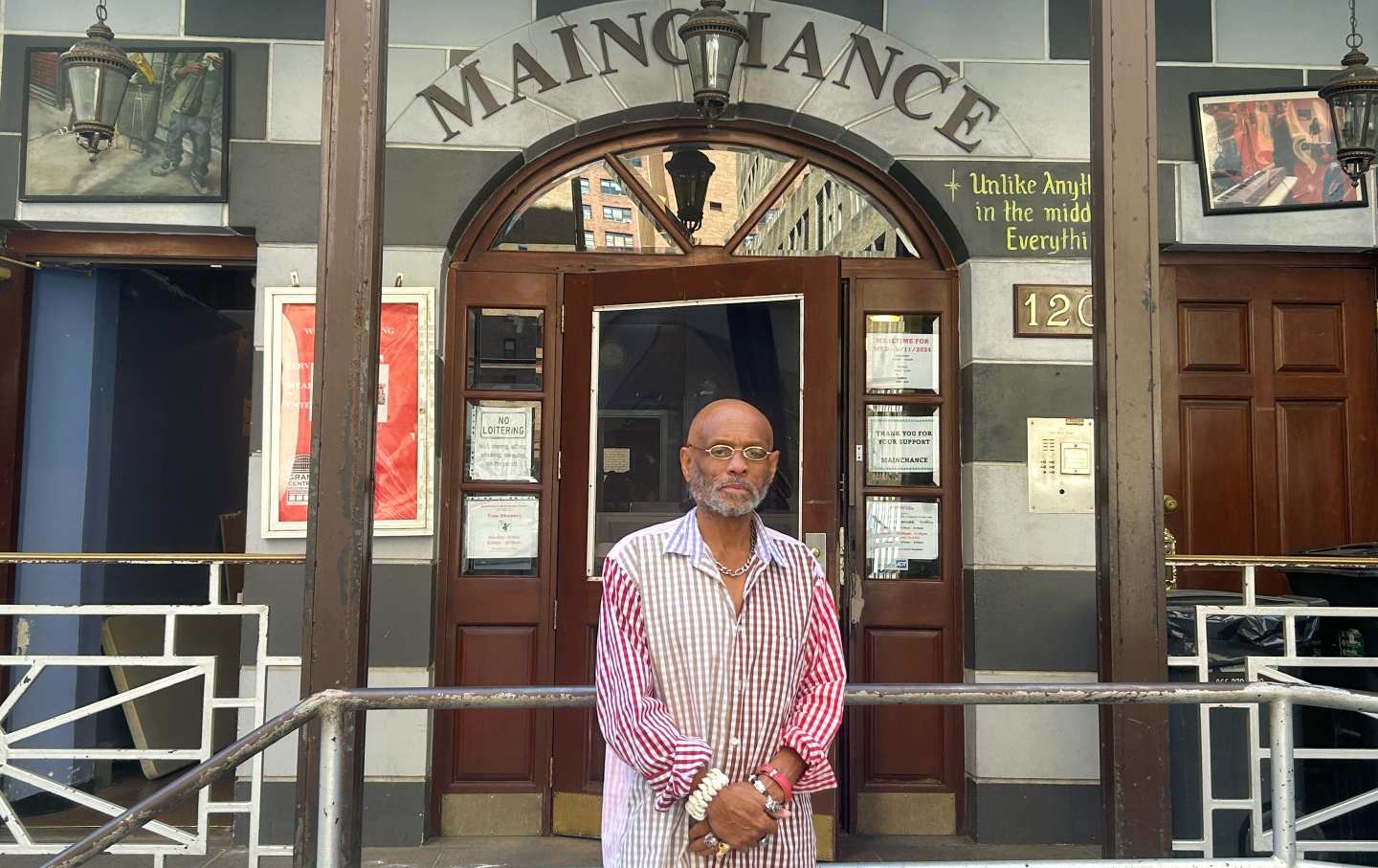
As Homelessness Spikes in New York City, Eric Adams Is Trying to Close a Homeless Shelter As Homelessness Spikes in New York City, Eric Adams Is Trying to Close a Homeless Shelter
The possibility of closure looms over the patrons of the Mainchance drop-in center.


